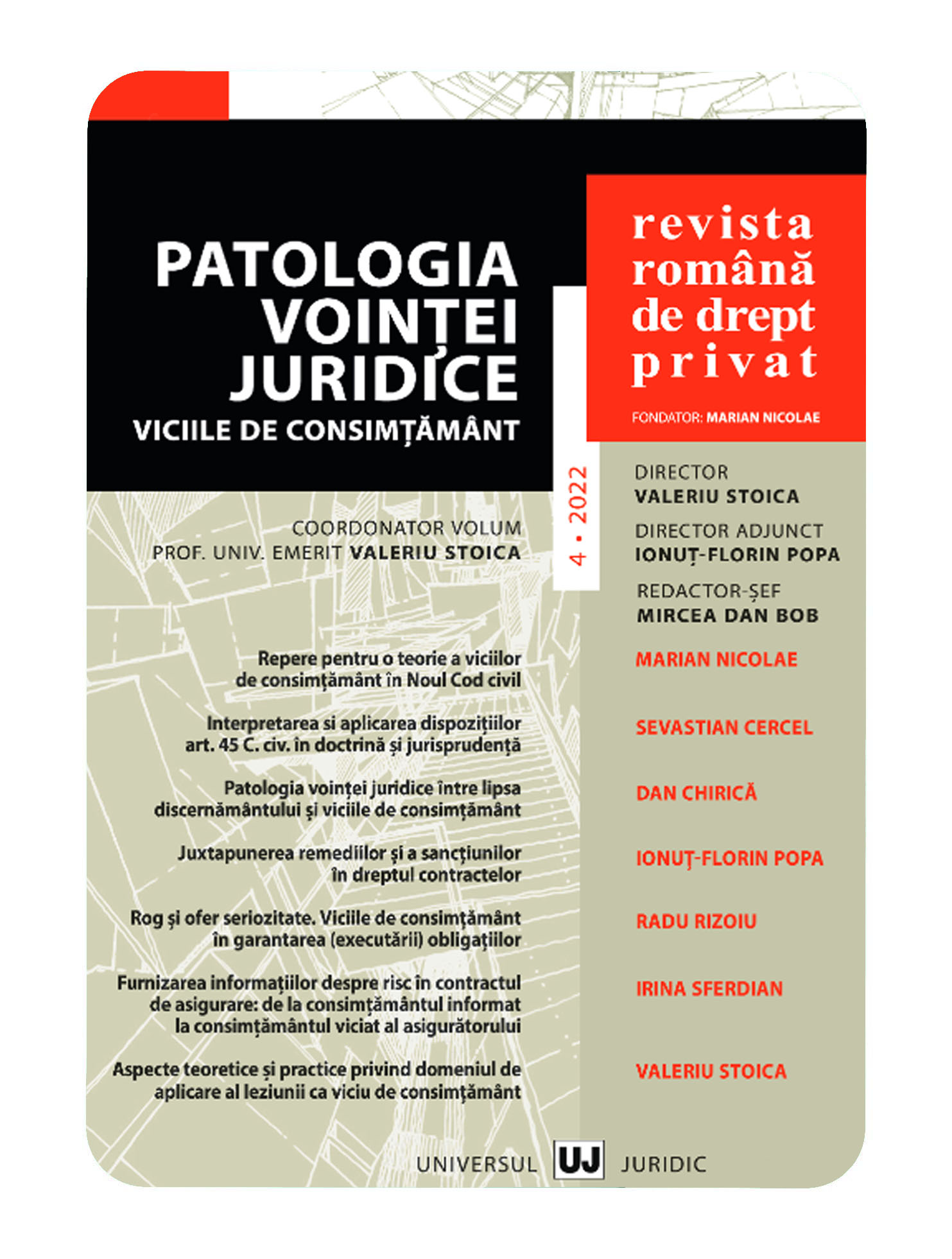Interpretarea si aplicarea dispoziţiilor art. 45 C. civ. în doctrină şi jurisprudenţă
Interpretation and application of Article 45 of the Civil Code in doctrine and case law
Author(s): Sevastian CercelSubject(s): Law, Constitution, Jurisprudence, Civil Law
Published by: Universul Juridic
Keywords: mentally incompetent person; deceitful actions; mere declaration of capacity; deceit by reticence; maintenance of contract;
Summary/Abstract: The basis of the solution provided for by Article 45 of the Civil Code, previously regulated by Article 1.162 of the Civil Code of 1864 in relation to minors, lies in the principle of civil liability in tort. A minor who has committed a tort or delict in this matter can no longer invoke his minority as a ground for invalidity of the civil legal act. By terminating the civil legal act on this ground, the other contracting party would suffer damage, which the minor, as the offender, would have to remedy. Contract maintenance is the „appropriate” solution, which, under the current rules, applies to incapable persons in general. However, the „mere declaration of capacity” made by the incapable person does not make the act void. To do otherwise would amount to abolishing the protection of incapable persons, and such a declaration would be found in all concluded acts and could be obtained relatively easily. On the other hand, Article 45 of the Civil Code regulates a special situation of deceit, to which the provisions of ordinary law are duly applicable (Articles 1.214-1.215 of the Civil Code). The application of deceit by reticence seems to be ruled out, and the „mere omission” of the mentally incompetent person cannot constitute malice if the other party had the opportunity to inform himself and to know the age or state of health of the other party. The mentally incompetent person's omission cannot remove the effects of publicity formalities which concern the very enforceability of the incapacity, and good faith is verified by reference to entries in public registers. The deceit must be committed by the mentally incompetent person. The complicity of a third party is not excluded de plano. When the legal representative of the mentally incompetent person is involved, his act alone cannot impose the sanction provided for in Article 45 of the Civil Code, because the legal protection of the mentally incompetent person would depend solely on the will of a person, which cannot be accepted. Finally, the court cannot decide to „uphold” legal acts for which the law imposes, by mandatory rules, certain formalities which have been infringed. The judge decides whether to annul the act for incapacity or to uphold the act for deceit committed by the mentally incompetent person, if he considers this to be an „appropriate civil penalty”.
Journal: Revista Română de Drept Privat
- Issue Year: 2022
- Issue No: 04
- Page Range: 88-109
- Page Count: 22
- Language: Romanian
- Content File-PDF

